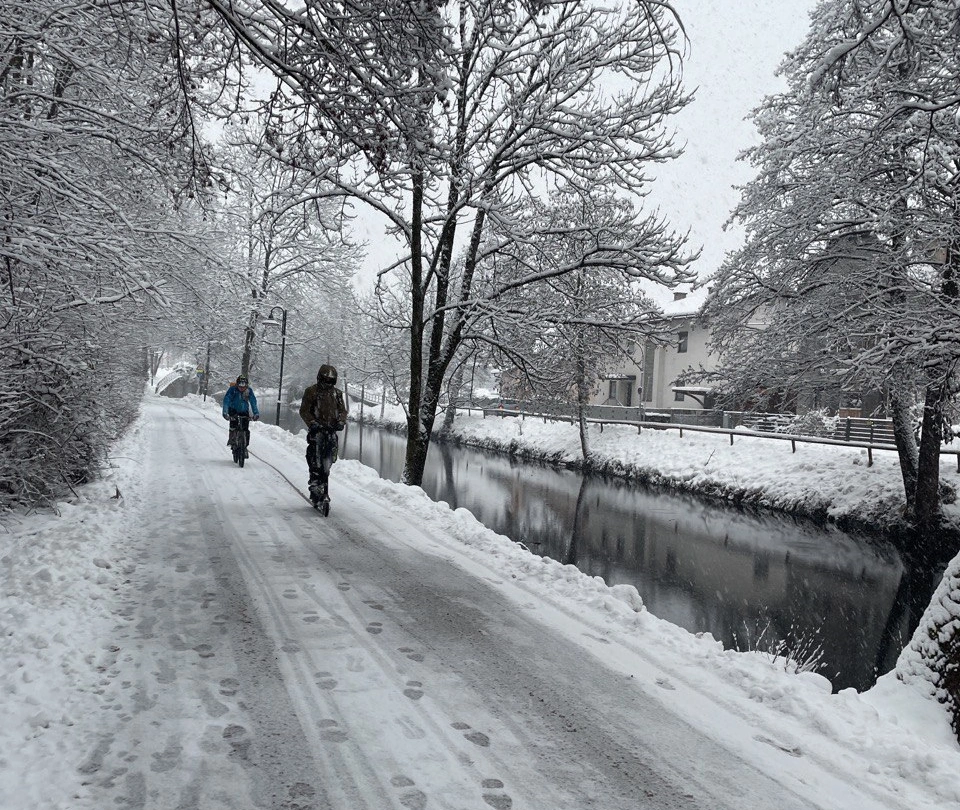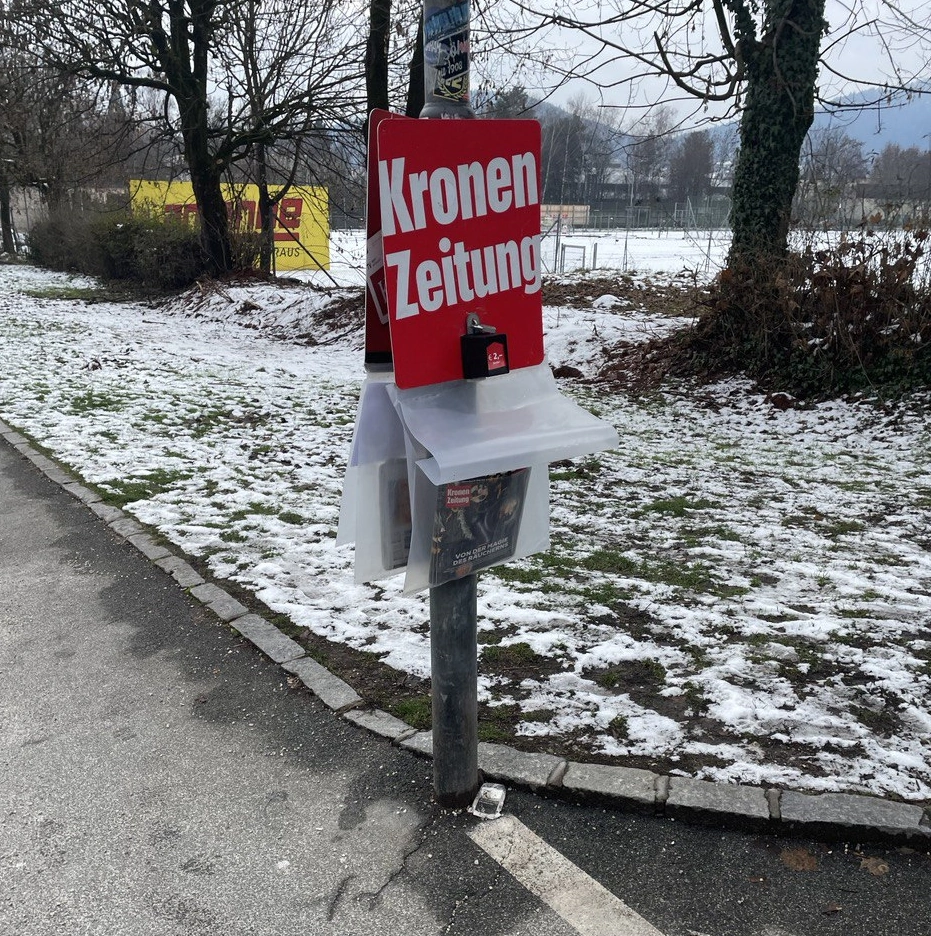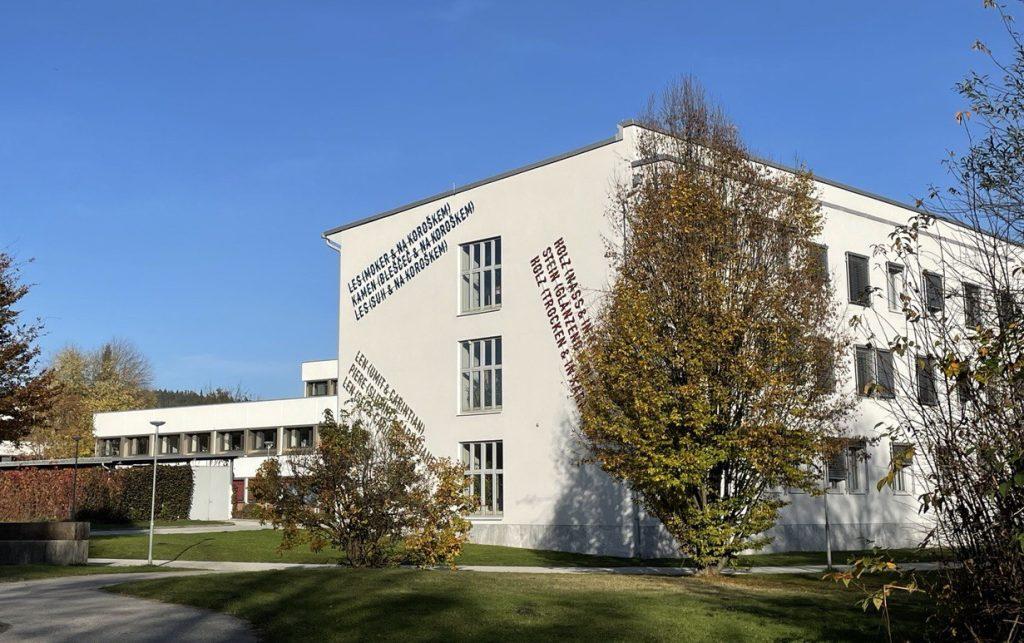After five months in Austria, I think I can write an article about the most significant difference that I found during my stay in the German speaker country. I encountered countless differences between the lifestyle (day-to-day life) and the way to teach at the University. Especially for the last list of differences, I’ll give a list of pros and cons from my point of view.
Differences in day-to-day life
First of all, one thing you may immediately notice when you are in Austria is that Austrians mainly bike or scooter to get around. The nice thing is that bike lanes are present almost everywhere. Even during the very heavy snowfalls, which I was able to witness during my stay, I saw Austrians using bicycles.

In Italy, we consider the Germans and Austrians very precise, with a rigid and standardized way of doing things. That is now just a myth, but I saw with my eyes that it is completely true. During my permanence in Klagenfurt, I appreciated that everyone respected the rules and was always (at least ninety percent)on time. Especially public transportation, services and markets were always precise with their timeline. Something that also happens in Italy but not so often.
What time do you have dinner?
In contrast to what we used to do in Italy, one of the most significant differences between Italy and Austria is the time that we usually eat. More in detail, generally, every Austrian used to have dinner very early. For example, during the week, Austrians eat from 17.30/18.00 to 21.00. This involves restaurants having weird opening and closing times.
As an Italian, I always have dinner from 19.30 to 21.00. That thing didn’t help when, with other Italians, we decided to eat out: when we usually start to have dinner, in Austria, the restaurants are going to close! That is true for most restaurants, with few exceptions.
Also, due to these meal times, parties and evening celebrations start much earlier than what usually happens in Italy. The majority of parties and discos open at 20.00 or 21.00 to close very early, like at 2.00.
In the beginning, that was really frustrating because these schedules all threw my habits out of whack. But after a while, you can start getting used to living like them, which is not so bad.
Everything is closed
Another thing that shocked me the first time was that on weekend, is that shops, restaurants and also museums (quite EVERYTHING) close during the weekend (on Saturday everything close earlier and on Sunday they stay closed). In Italy, we go shopping during the weekend, or we go out in the city center to buy things, eat outside with friends or family, etc.. In Austria, you cannot do any of these activities. During Sunday, Austrians often engage in recreational activities such as taking walks, hiking in the mountains, going to sporting or cultural events, or simply relaxing with family or friends. In some regions of Austria, Sunday is considered a sacred day of rest, with many commercial and public businesses remaining closed for the day.
There is greater public confidence in compliance without controls. For example, during my excursion to Vienna, I was amazed that the city’s subway had no turnstiles to enter the subway. There were only ticket obliterators at its entrance but they were not barriers but simply machines hanging on the wall. Another example is how newspapers are sold. In fact, in addition to simple outlets where newspapers can be bought, there are envelopes attached to some places in the city, such as light poles in which there are newspapers. In addition to the envelopes, there is a box where you have to insert money to take the newspaper. Here you can find an example of what I was saying above.

University
Foreword: I’m doing my Bachelor studying computer science at the University of Turin. During my Erasmus+ in Austria, I had the opportunity to follow both Bachelor’s and Master’s classes. Therefore, I will compare what I did during my first five semesters in Turin with my one semester in Klagefurt.
To have a high-level view, Austrian classes were generally much more practical than Italian ones. The final grade, in many cases, was composed of a percentage given by a written or spoken exam, and another portion of it was provided by the assignments. In fact, a lot of teachers used to give you weekly homework that you had to submit before the end of the deadline. VOs haven’t any assignments (read below to know what they are).
Type of classes
I followed UE, VO, and VC classes at the University of Klagenfurt. These acronyms mean:
- UE – Übung: classes are typically smaller in size and are led by a teaching assistant or tutor. They are designed to allow students to apply and practice the concepts, theories and methods taught in lectures. In a few words, this type is designed to give you only practical notions giving you weekly assignments and a final big project to complete in a group or alone. At the Univerity of Klagenfurt, typically, UE classes are in English.
- VO – Vorlesung: classes that are lectures in which a professor or lecturer presents the main concepts, theories and methods of a given subject to a large audience of students. This is the most similar way of teaching as there is in Italy. There is a teacher that provides the students only theory. The lectures can be both held in English and in German.
- VC – Vorlesung mit Computerunterstützung: classes can include theoretical and practical elements, and they may or may not include exercises, depending on the subject and the course design.
The use of computer technologies in VC classes can also vary widely, from simple presentation tools to more sophisticated online learning platforms and multimedia materials. In Klagenfurt, the VCs are the type of classes for Master’s programs and they are in English.
Comparisons, pros and cons
In my opinion, weekly assignments are very stimulating for learning concepts during the semester as they “force” you to do things during the week and do not allow you to accumulate a lot of notions to study a few weeks before the final exam. However, it was challenging at first because, in my case, I was taking a lot of VCs and UEs, and weekly I would find myself with 5/6 assignments to hand in less than a week.
Moreover, another positive thing was the size of the classrooms and the number of students in each class. This fostered a relationship with the lecturer by improving interest in the class and the course.

Another difference with Italy is that during the week you are much ‘freer’ from lessons. In the sense that each course has fewer hours during the week. For example, usually, each class has 2 hours a week if not 1. I typically had at least 4 hours a week in Italy for the same course. Sometimes even 6 and 8 for classes of 12 ETCS. This is very good as you have more time to spend doing sports, being with friends or doing your own personal projects. It is also true, however, that you spend many hours doing the assignments provided.
Of course, there are some negative aspects. Sometimes you need to be given more knowledge to do the assignments. This can sometimes be incredibly frustrating if you also have numerous other jobs. On the other hand, it can also be very challenging if you want to challenge yourself by learning several things on your own!
Personal opinion
Generally, I found this experience very stimulating, and I learned a lot with this way of teaching, which is totally different from the Italian way. As mentioned earlier, in the beginning, it took a lot of work to get organized and to be able to do everything. Still, you can successfully follow every assignment and lesson after a short time. Definitely, it is a different methodology that everyone should try. Especially to those who study more technical subjects, like mine!


3 replies on “Austria vs Italy”
Prima 😆
so many good experiences!
Gotta add to the cons the consequences of everything being closed on sunday: ppl not going out at all, street lamps staying off or extremely dim (actually everyday), salud, the damn “look”, lav vs gav 😂
Very good read, 10/10
(people smiling at you in the streets, “free” mugs during Christmas markets, putting spiegelei and cucumber in the morning croissant… Austria is really something different!)